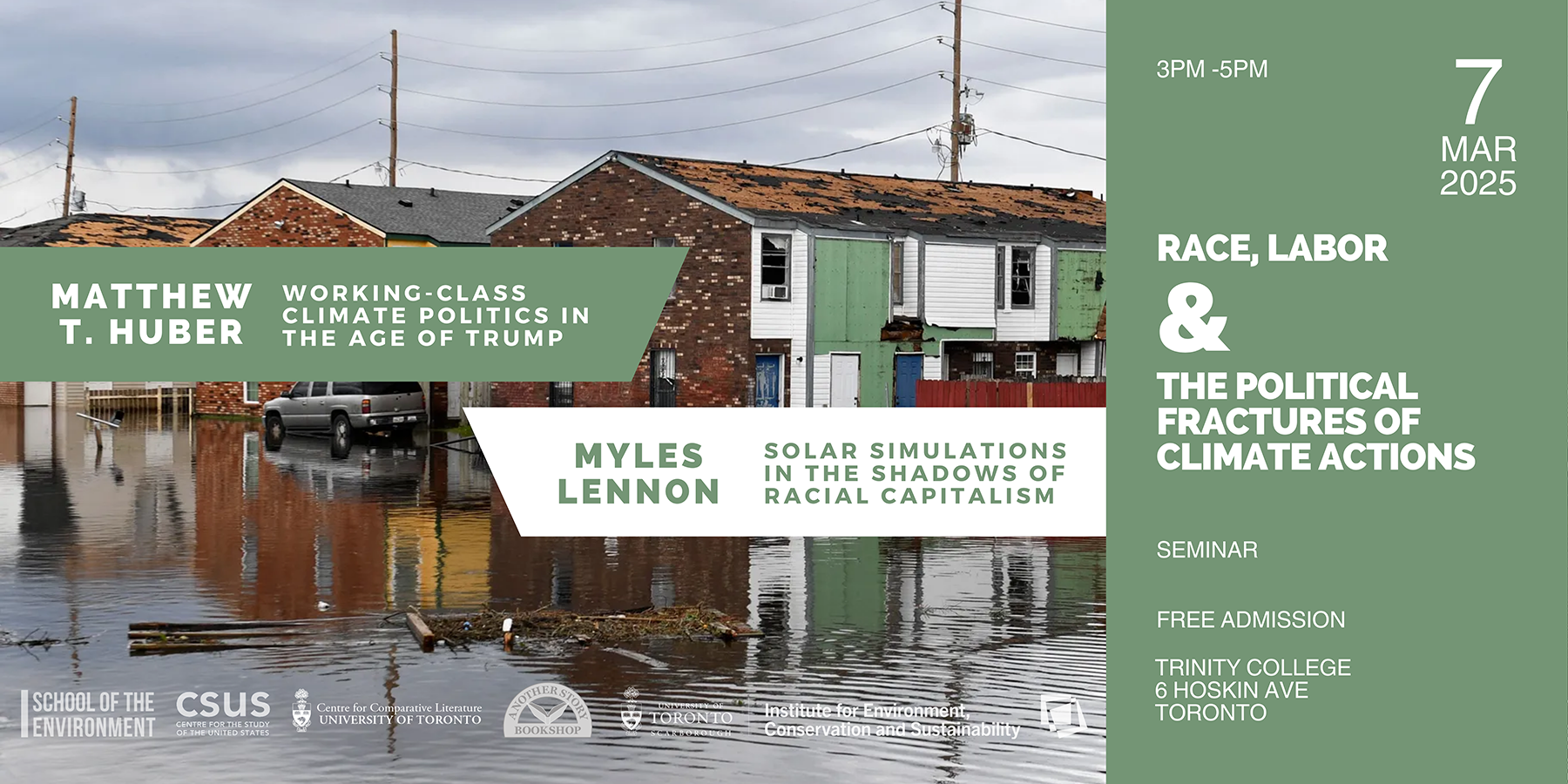Race, Labor, and the Political Fractures of Climate Actions
When and Where
Description
Matt Huber is professor of geography at Syracuse University and the author of Lifeblood: Oil, Freedom, and the Forces of Capital (U of Minnesota P) and Climate Change as Class War: Building Socialism on a Warming Planet (Verso).
Myles Lennon is Dean’s Assistant Professor of Environment and Society and Anthropology at Brown University and a former sustainable energy policy practitioner. His book, Subjects of the Sun: Solar Energy in the Shadows of Racial Capitalism (Duke UP), is forthcoming this June.
Matt Huber: “Working-Class Climate Politics in the Age of Trump”
Circa 2018-2020 much left energy around climate change in the United States and beyond was channeled into calls for a “Green New Deal.” Advocates implicitly or explicitly argued such a program could appeal to the multiracial working-class majority with demands like a public job guarantee and social “green housing.” Many suggest this political push led directly to the Inflation Reduction Act – and its associated attempts to link decarbonization to good union jobs and industrial development – but the 2024 election showed a vast shift in the multiracial working-class support toward Trump not the Democrats (this shift of the working class to the right is also a global phenomenon sometimes explicitly in rejection of liberal climate policies). This talk addresses where this all leaves a working-class approach to climate politics in 2025.
Myles Lennon: “Solar Simulations in the Shadows of Racial Capitalism”
In the face of accelerating climate change, anticapitalist community-based organizations and elite tech corporations increasingly see eye to eye. Many in both camps envision solar-powered futures where renewable energy redresses gentrification, systemic racism, and underemployment. Importantly, digital media and screen-based platforms shape this shared political imaginary. While solar technologies require mining, manufacturing, and physical labor, many clean energy advocates solely experience solar in the 2D world of the cloud—overlooking the racialized extraction and exploitation that bring solar into being. This simulation of sustainability blurs the ideological boundaries between radical climate justice principles and pro-corporate politics, diluting the political poles that separate white-collar experts from grassroots agitators. As a corrective to this virtual world, I call for a just transition that centers the senses and sensibilities neglected by screenwork through a case study of a solar-powered composting operation.



